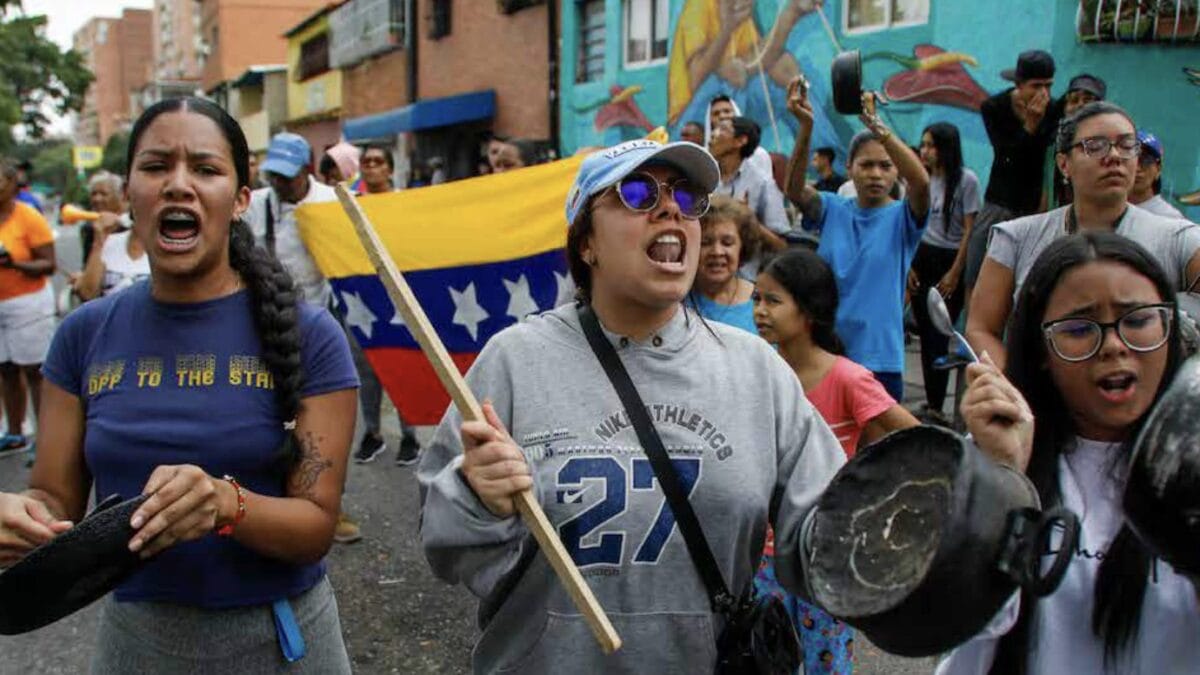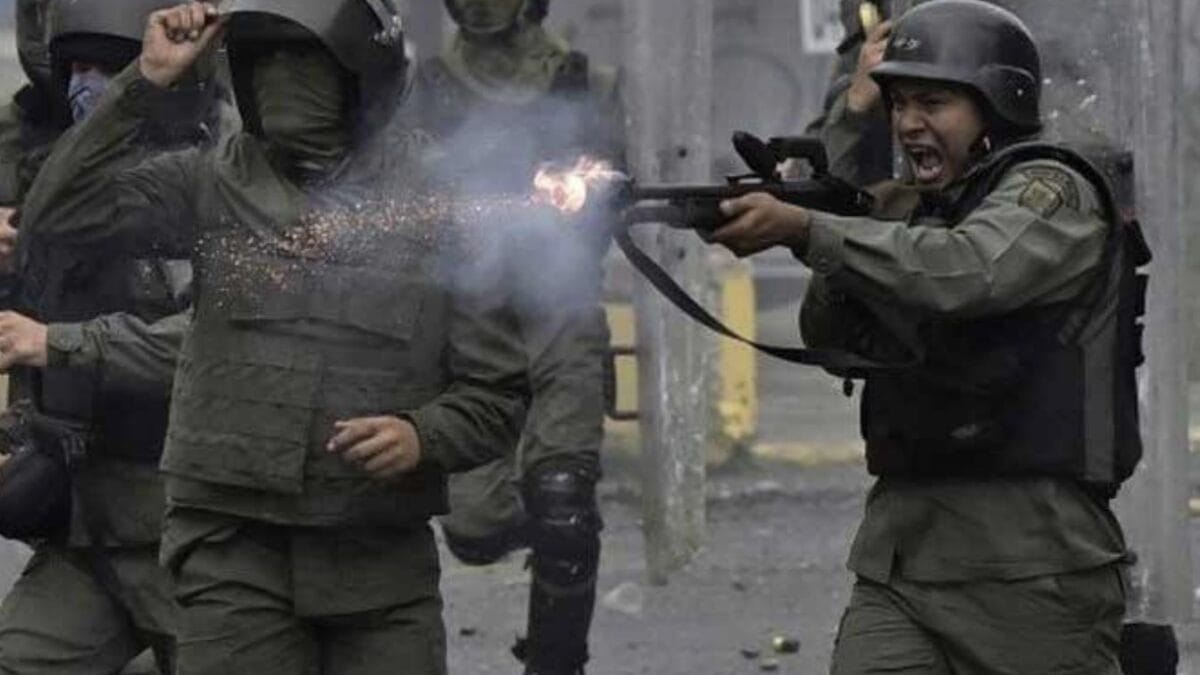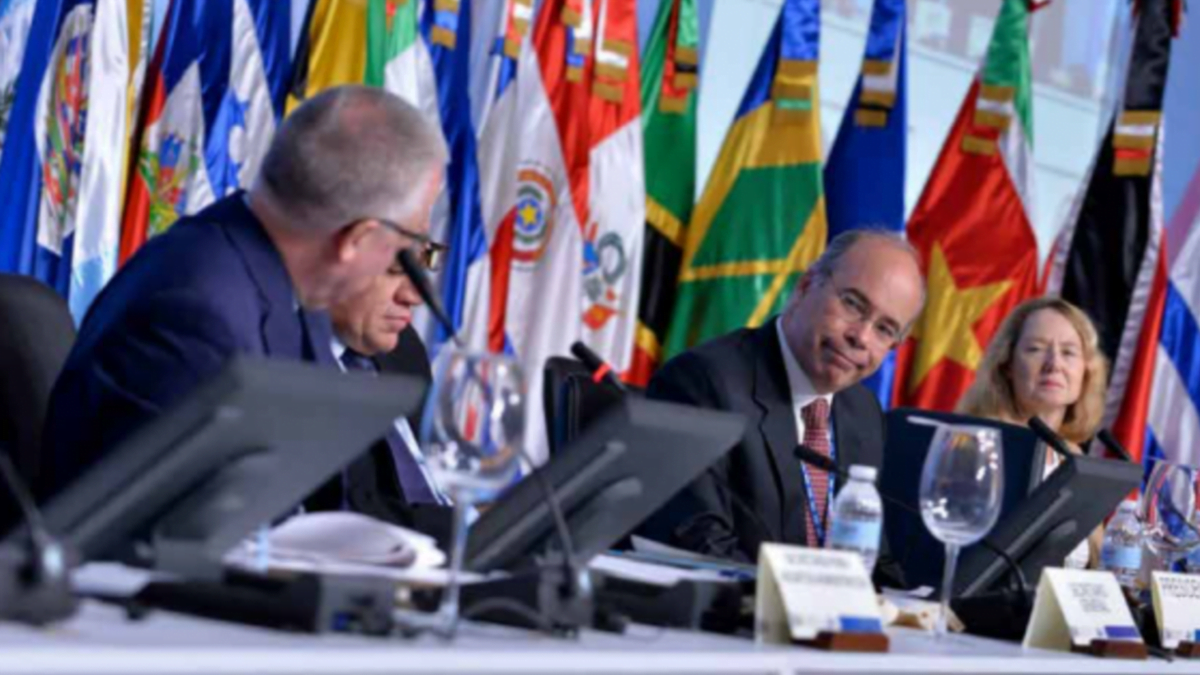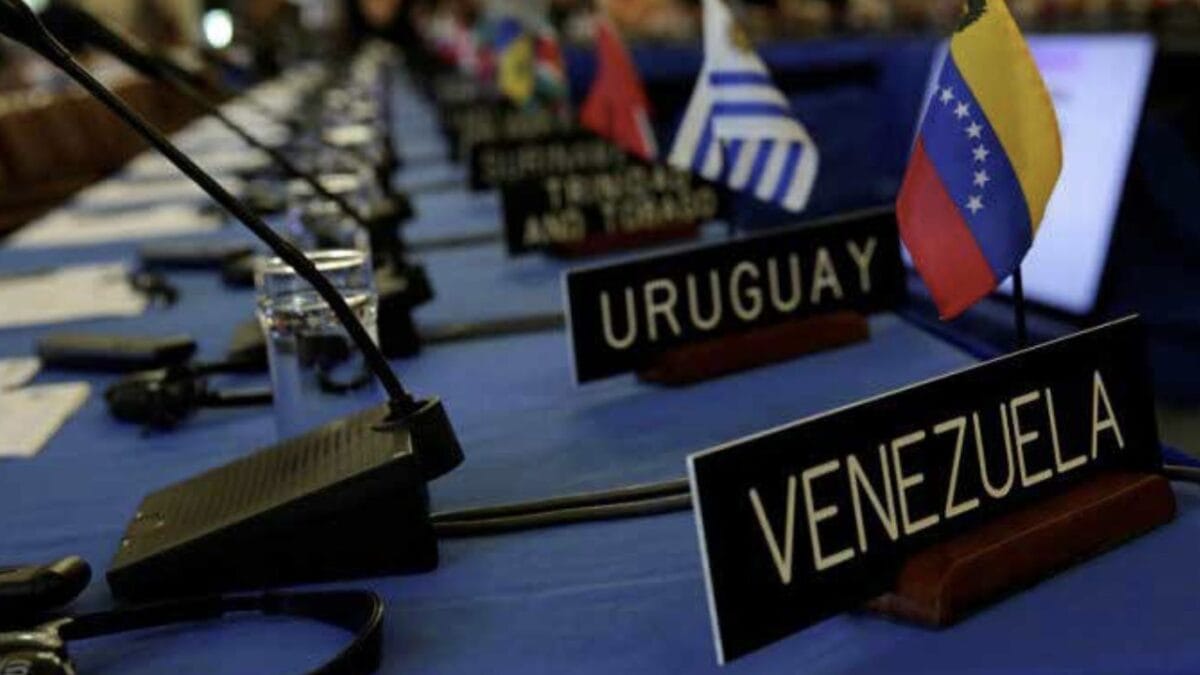Maduro’s reelection through the electoral fraud of July 29th is a material and symbolic blow to the sovereignty and citizen welfare of Venezuelans and is a threat to other countries in the region. The Nicaraguan Democratic Concertation is concerned about the course of the presidential elections in Venezuela, feeling reflected in the struggle of the Venezuelan people against an authoritarian government that yearns to recover democracy through peaceful means, exercising their vote at the ballot box.
What the fraud reveals is that the opening of political spaces in Venezuela was an apparent and functional excuse intended to disqualify several presidential candidates, register an opposition candidacy and develop an electoral campaign in both physical and digital spaces, with the sole purpose of legitimizing a rejection of the sovereign vote accompanied by repression.
The arrest of opposition politicians and threats to their personal integrity demonstrated that the regime of Nicolás Maduro would not yield to the possibility of a transition of power and that popular participation was a political façade to legitimize the regime.
From a distance, the CDN Monteverde witnessed countless images showing millions of Venezuelan citizens participating in these elections, who according to independent pollsters overwhelmingly expressed their support for Edmundo Gonzalez Urrutia and the change he represents, not only for Venezuelans in the country but also for the millions who have been forced to emigrate to flee this authoritarian regime.

It was to be expected that the National Electoral Council (CNE), controlled by the ruling party, would manipulate the results to benefit the regime of Nicolas Maduro. They have staged a mocking spectacle before the Venezuelan citizens who exercised their right to vote and for the international community, in which they accuse the opposition of alleged “hacks” and have declared themselves winners without presenting the electoral records.
Such actions cannot be categorized as anything other than electoral fraud. These days are crucial for the future of Venezuela and the region. The international community of democratic countries must step forward and do what is possible to prevent this fraud from being accomplished.
What does the continuity of the regime represent? The prolongation of Maduro’s authoritarian regime means the continuation of a serious humanitarian crisis in Venezuela, characterized by economic mismanagement, shortages of food, medicines, and basic services, and the absence of citizen and judicial security.
This situation directly affects the Venezuelan population, which will continue to suffer the ravages of economic vulnerability or will be forced to migrate en masse to neighboring countries such as the United States, Colombia, Brazil, Peru, and others in Latin America. This migratory wave creates enormous pressure on the health, education, and public services systems of the receiving countries, which face logistical and financial challenges to care for the migrants.
Uncontrolled migratory flows and the possible infiltration of criminal elements can destabilize security in neighboring countries. This manifests itself in multiple ways, such as an increase in transnational organized crime activities, including drug and arms trafficking, which represents an additional security challenge.

The Maduro regime has brought Venezuela into significant diplomatic isolation, affecting bilateral and multilateral relations in the region. Neighboring countries that oppose the regime face diplomatic and economic challenges as they try to balance their position towards Venezuela.
Furthermore, the continuity of the regime is a reminder of the raison d’être of this system, which operates through illicit operations with organized crime that it is now trying to extend and strengthen through geopolitical alliances with other non-democratic countries or countries with interests opposed to those of Western democracies, such as China and Iran, affecting the balance of power in the region.
The permanence of a regime that systematically violates human rights challenges collective efforts to promote and protect human rights in Latin America. The maintenance of an authoritarian regime in Venezuela can negatively influence other countries in the region, contributing to the erosion of democratic values and strengthening authoritarian tendencies.
Given this scenario, neighboring countries and the international community must develop joint strategies to mitigate the negative effects of the Maduro regime. This includes coordinated migration policies, targeted economic sanctions, and support for democratic initiatives within Venezuela.
We at CDN-Monteverde believe it is vital to close ranks with a community of democratic countries, societies, and movements to prevent further authoritarianism in Venezuela, and we urgently call on all democratic countries of the region and the world to unite in concerted and decisive action in the face of the crisis in Venezuela. The continuation of the Maduro regime not only perpetuates the suffering of the Venezuelan people but also represents a significant threat to the political, economic, and social stability of all of Latin America and beyond.
Collective Multisectoral Response to Confront the Challenges to Democracy

From the Nicaraguan Democratic Concertation, CDN-Monteverde, we have reaffirmed the political and legal commitments adopted by the member states of the Organization of American States (OAS) regarding democracy. We recognize the spirit embodied in the Constitutive Charter of the OAS, which “recognizes that representative democracy is indispensable for peace and development in the region”, therefore, it is important to promote and consolidate it.
In addition, we recognize the contribution of Resolution 1080 on Representative Democracy, and in particular the commitment made to the Inter-American Democratic Charter, which considers that cooperation among the American States takes place “on the basis of the effective exercise of representative democracy”. But we also believe that it is time to turn what is on paper into action.
For the CDN-Monteverde this is a matter of belief, conviction and experience. Nicaragua is no stranger to crises that eventually trigger democratic deterioration. Latin America has experienced two socio-political crises in recent years, the Nicaraguan and the Venezuelan, in both of which human rights and the rule of law have been violated and the regimes of both countries, which are repudiated by their people, have disrespected the electoral processes in an aberrant manner to perpetuate themselves in power.
In the case of Nicaragua, in 2018 both the OAS and the United Nations (UN), validated in situ that, as a result of a socio-political crisis, the Ortega Murillo regime murdered more than 300 people, imprisoned and tortured thousands and broke the constitutional order. Only three years later, prior to the 2021 electoral process, he imprisoned independent pre-candidates, eliminated opposition political parties, imprisoned leaders of all sectors of society, and erased with the stroke of a pen all civic rights of Nicaraguans, thus turning the elections into a mere formality to remain in power. Let’s not forget that since the 2016 elections he did not present all the voting records.
But the abuses did not stop there. In the last few years, political freedom, religious freedom, freedom of association, educational freedom and freedom of the press were all trampled upon.
Despite all this, the response of the international community has not been strong enough to stop these abuses and reverse the damage done to the country. What has been done, in reality, have been unilateral and scattered efforts.
The regrettable thing is that a precedent was established that is being replicated in other countries of the region. Proof of this are the anti-democratic laws being copied by Honduras and the Cuban dictatorship itself, or what has just happened in Venezuela, which is an updated copy of what happened in electoral matters in Nicaragua.

It was only at the recent General Assembly held in Asuncion, Paraguay that the OAS member countries unanimously condemned the case of Nicaragua. For the first time it was not necessary to vote on a resolution where the entire continent condemned the abuses, atrocities and violations of the Nicaraguan regime. It took six years for this to be achieved, but at a high cost for Nicaraguans.
Venezuela is currently undergoing a similar process and we must learn from the lessons that have shown us that we must act in a timely and collective manner.
The CDN-Monteverde regrets and rejects that the July 31 resolution on the publication of Venezuela’s electoral records was not approved and sees this failure to silence the voices of the Venezuelan people. The decision of the countries that prevented the approval of the resolution goes against the democratic conventions and agreements within the Inter-American system and delays the search for a solution to a crisis that, as it drags on, will result in more deaths, imprisonment and increased polarization in the country.
The CDN-Monteverde calls on the countries that abstained from voting and those that were not present at the session, not to wait six years as in the case of Nicaragua, to act and vote correctly. In addition, it reiterates the legal and political obligation of the member states to assume the collective responsibility to promote the restoration of democracy in Nicaragua and Venezuela, based on a strategic multisectoral approach, which can begin with a real pressure to respect the sovereign will of Nicaraguans and Venezuelans.
As expressed in the last resolution approved on the case of Nicaragua, the call is for action in different fields to stop these abuses. What is happening in these countries, in addition to a democratic regression, is an outrage to the human dignity of the people. the CDN-Monteverde calls to put a stop to this, and warns that if this is not done the autocratic wave will continue to grow and cause serious havoc in the region.
